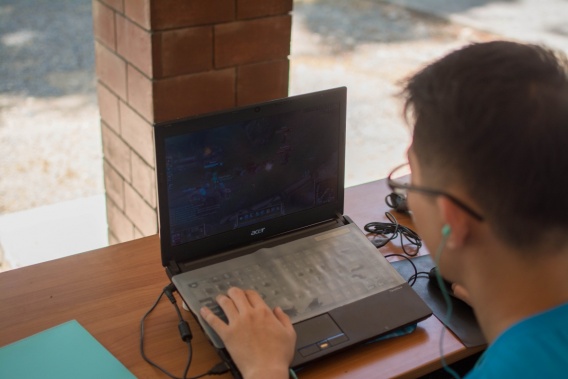The Department of Information Systems and Computer Science (Discs) announced the establishment of a new course: The BS Computer Science-BS Digital Game Design and Development (BS CS-DGDD) dual degree program.
The BS CS-DGDD course is a five-year program that will award students with a BS CS degree upon completion of their fourth year and a BS DGDD degree after their fifth.
“We’ve wanted to do something like this [in Discs] for over 10 years and we’re excited for the course. We feel that students have the potential and skill to do many interesting things,” said DGDD Program Director Mercedes Rodrigo, PhD.
The course has been given final approval by the Ateneo Board of Trustees and will be introduced in the upcoming school year.
Course content
According to the course proposal obtained by The GUIDON, the program aims “to produce highly skilled game design and development Ateneans who are capable of creating games for diverse purposes.”
The new course will follow the pattern set by other dual degree programs, such as the Applied Physics-Materials Science Engineering program and the Chemistry-Materials Science Engineering program, which is to require students to take a foundational degree before pursuing the specialized major of the program.
The freshman and sophomore years of the BS CS-DGDD program will follow the same curriculum set for BS CS students.
The sequence of core subjects, such as philosophy and theology, in their junior and senior years is also the same.
However, instead of taking three CS electives and two free electives in the last two years, BS CS-DGDD students will take a sequence of five interdependent subjects tailored to serve as foundation for the DGDD degree.
In junior year, students will take Introduction to the Design and Development of Computer Games (CS 179.6), Computer Graphics Programming (CS 177), and Linear Algebra for DGDD, which is a course to be offered by the Mathematics Department.
The senior year will feature Computational Geometry (CS 179.10) and Advanced Computer Graphics Theory and Programming (CS 179.7).
Rodrigo noted that all of the DGDD-required subjects taken up in junior and senior year involve “a sizable amount of mathematical work.”
Aside from the said subjects, the DGDD program will have a two-year Integrative Project spanning a student’s fourth and fifth years.
For the project, students will be expected to conceptualize and create a full-fledged video game.
The bulk of DGDD units will be slated for the fifth year, with students also taking up non-Discs related subjects, such as Basic Graphic Design (FA-ID 103.1), to be taught by the Fine Arts Program.
The story
According to Rodrigo, the motivations for establishing the DGDD program spanned the economical, educational and cultural sectors.
“There is a need for us to be more participative in creating high [cultural value] type products, such as games,” she said.
Discs Lecturer Walfredo Diy said that another key factor in the proposal of the new course was the potential educational value that could be generated by video games.
“For some people, we just process information better if it’s presented in a game format, where we get to directly get to interact with the information that we’re supposed to learn in an engaging manner instead of just reading,” he said.
Rodrigo also noted that the interdisciplinary and humanities-focused environment that the Ateneo provides influenced the course development.
“Compared to other universities, our brand of the core curriculum places a heavy emphasis on the arts, and for students to become great game-makers, they need exposure to a variety of sources of inspiration, a lot of which is already present in Ateneo culture,” she said.
She also said that the compatibility of the course with the university manifests itself in how strongly Ateneo engages in “experience-based life learning” through the Integrated Non-Academic Formation Program.
Likewise, Diy said that the Ateneo is a good place to gain life experience that is necessary in making games.
“You can probably make a good game if you study all the theories about game design, and you know all the languages, and if you have all the technical tools necessary, but it is only the life experiences you have that will make it great,” he said.
Furthermore, Rodrigo said the interconnected nature of the university allows for students of different majors and disciplines to come together, which is especially important in the process of game development.
“The cooperation between [Discs] and other departments such as the Math Department and the Fine Arts Program was key in bringing the DGDD program to life in the first place… We feel that it would be key to a student-produced game as well,” she said.
According to Rodrigo, the first DGDD degrees will be awarded in 2018.








*DISCS
That looks promising.
Please make necessary changes on the capitalization of the abbreviation of the department’s name
DISCS
*DISCS
ano ba